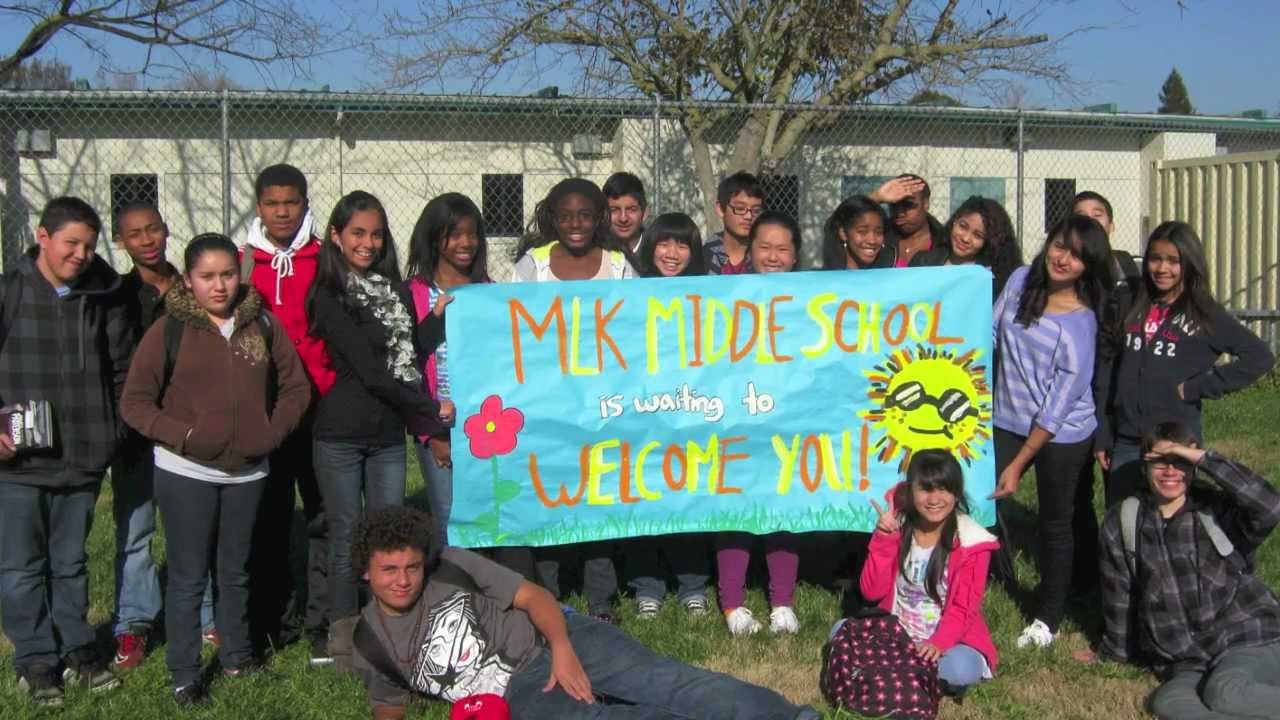(Co-authored with Justin Mallone.)
 When you see violent thugs rioting in the streets, you may assume they're strong, scary zealots. They claim to care deeply about strongly-held political views. They present themselves as being so inspired and motivated that they're willing to fight for their ideals.
When you see violent thugs rioting in the streets, you may assume they're strong, scary zealots. They claim to care deeply about strongly-held political views. They present themselves as being so inspired and motivated that they're willing to fight for their ideals.
I want you to reconsider. Most of them are ignorant victims. They are abused and controlled by a few leaders (aka "community organizers"). Just like how cults control, indoctrinate and abuse people. Most of the violent thugs are actually weak, pathetic wretches with no money, no control over their lives, and no idea what's going on. They're sad victims to be pitied, not strong zealots to be feared.
Violence is a serious matter and the police need to provide protection and arrest rioters. Don't walk up to these people for a chat; they're dangerous. But do change your perspective on them.
Yvette Felarca & BAMN
Yvette Felarca is a leader in a left-wing, American, political cult called By Any Means Necessary (BAMN). They use violence for political purposes. They indoctrinate and abuse children. They're Marxists. They've been in the news recently for violently shutting down speeches by conservatives.
The ridiculous full cult name is Coalition to Defend Affirmative Action, Integration, and Immigrant Rights and Fight for Equality By Any Means Necessary.
BAMN was created in 1995 by Attorney Shanta Driver, in Berkeley, California, in order to oppose Proposition 209. Proposition 209 ultimately ended affirmative action in the state's university system. Affirmative action is racist – it's literally about treating people differently according to their race – so BAMN is a racist group. More about BAMN.
Riots and Violence
 BAMN participated in violent riots that shut down Milo Yiannopoulos's talk at Berkeley earlier this year, and Felarca defended the riots on TV! She said rioting was necessary to shut down Milo, who she victim-blamed as a fascist. She defined fascist as "someone who’s organizing a mass movement that’s attacking women, immigrants, black people, other minority groups in a movement of genocide." Milo hasn't called for killing anybody. Felarca is a liar who wanted violence first (to suppress ideas she hates) and made up an excuse second. BAMN's violence also led to suppressing the free speech of Ann Coulter and David Horowitz, and the students who invited them, at Berkeley.
BAMN participated in violent riots that shut down Milo Yiannopoulos's talk at Berkeley earlier this year, and Felarca defended the riots on TV! She said rioting was necessary to shut down Milo, who she victim-blamed as a fascist. She defined fascist as "someone who’s organizing a mass movement that’s attacking women, immigrants, black people, other minority groups in a movement of genocide." Milo hasn't called for killing anybody. Felarca is a liar who wanted violence first (to suppress ideas she hates) and made up an excuse second. BAMN's violence also led to suppressing the free speech of Ann Coulter and David Horowitz, and the students who invited them, at Berkeley.
Felarca has a history of personally participating in violence. She attacked a man and incited others to attack him at a gathering of white nationalists called the Traditionalist Workers Party in Sacramento in June 2016. That violence left seven people stabbed and nine hospitalized. A California Highway Patrol officer said Felarca's group started the violence, “If I had to say who started it and who didn’t, I’d say the permitted group didn’t start it." A statement from the California Highway Patrol agreed, saying that the Traditionalist Workers Party had obtained a permit and that "non-permitted groups confronted the permitted group, leading to violence."
And this violence is all part of a conscious strategy of, in Felarca's own words, building a "mass militant" movement.
A Danger to Children
 This would all be bad enough if Felarca was a full time communist activist working for George Soros. But she's actually a teacher at Martin Luther King, Jr. Middle School in Berkeley. She uses her position of authority over children to recruit for BAMN during school. She pushes her political agenda when she's supposed to be teaching.
This would all be bad enough if Felarca was a full time communist activist working for George Soros. But she's actually a teacher at Martin Luther King, Jr. Middle School in Berkeley. She uses her position of authority over children to recruit for BAMN during school. She pushes her political agenda when she's supposed to be teaching.
And BAMN isn't just a group of violent communists (that'd be bad enough!). It's worse. It's a cult which abuses children. BAMN lures children to join (including directly from public school) and uses intimidation, threats and force against its own members to prevent them from leaving. It has dozens of dirty tactics including lying to get people psychiatrically institutionalized when they try to leave BAMN and placing guards on people to prevent them from leaving.
BAMN Cult
 There are numerous testimonials regarding BAMN's cult-like operation and recruiting methods. Secret Survivors of BAMN is a blog where people who escaped discuss their trauma and how the cult operates. They made it private after BAMN's recent rioting drew attention, but a copy remains publicly available.
There are numerous testimonials regarding BAMN's cult-like operation and recruiting methods. Secret Survivors of BAMN is a blog where people who escaped discuss their trauma and how the cult operates. They made it private after BAMN's recent rioting drew attention, but a copy remains publicly available.
I'll present three testimonials so you can judge for yourself what BAMN is really like and whether the police should shut them down:
Jevon's Testimonial
Jevon (PDF mirror) is a UC Berkeley Alumni. He was recruited into BAMN at age 14 and then pressured to leave his family (in Detroit) and live with BAMN members in Oakland. BAMN said he could get legally emancipated soon after and rejoin his family if he wanted to. But after he arrived in Oakland to live with Yvette Felarca, Jevon was instructed to change his name and cut off all contact with friends, family, and even other BAMN members in Detroit. (Isolating people and cutting them off from their old life helps cults control them.)
Jevon wound up being told he could go home after some time had passed, but the time to return home never came, a charade that continued for almost a year. Eventually he reconciled with his family and his mother bought him a plane ticket back to Detroit. But cults don't let members just walk out the door:
When they realized they could not talk me out of leaving, they got physical. Yvette Felarca came into my room one night and instructed me to read out loud a statement that Shanta Driver had written and convinced me to sign about how my family was abusive. Tired of debating my decision with them, I refused. That night, Yvette and other BAMN members took turns sleeping by my bed to “make sure he doesn’t go anywhere.” They confiscated my house keys to restrict my movement.
While trying to make his flight, BAMN members tried to take away his suitcase. Then three cultists assaulted him to grab his phone to prevent him from arranging to leave. Jevon fought off the assault enough for his mom to hear what was going on over the phone, and she called the police. BAMN lied to the police who were then hostile to Jevon. He eventually managed to talk the police into letting him leave after BAMN stole all his money and ID cards.
With the help of a neighbor Jevon made it to the airport and escaped. BAMN still did what it could to punish him for leaving the cult:
When I tried to inform other BAMN members about what had happened to me, particularly other youth many of whom I had recruited and therefore felt responsible for putting at risk, I learned that BAMN had denounced me to everyone. They told people that I had went crazy and turned against the organization and went to the police and that everyone should call off all contact with me. They were also instructed to report my whereabouts to Shanta because they were looking for me to put me in a mental institution.
From talking with people afterwards, Jevon learned that BAMN had treated other people in a similar way to his own nightmare experience.
Alex From Detroit's Testimonial
Alex from Detroit gives an account (PDF mirror) of her experiences with BAMN. She was manipulated by her girlfriend who threatened to dump her if she wasn't in BAMN's inner circle. And she tells us about BAMN's recruiting methods:
So they start out luring kids with field trips and the chance to skip classes for meetings. When I was at [Cass Technical High School] they had a very strong presence because Steve Conn was one of the math teachers and most of their student leadership came directly from Cass. The kids who are just in it for ditching school are [used] mostly as bodies and extra mass during the rallies and protests. They could care less what happens to these kids but the more numbers they have on their side the better the protests look to the media.
School teachers exploit their captive audience to recruit for BAMN. Children come to meetings to get out of school. What kind of system is that? Teachers shouldn't be encouraging kids to cut class and attend Marxist cult meetings instead. And then they use bored, powerless students as extra bodies at political rallies and protests which they sometimes turn violent!
Alex explains how involvement escalates as children are pressured to do more and more BAMN activities:
If you are not just in it for ditching school and had actual political leanings, they invited us to after school meetings where we would discuss current group events or if there was a particular rally, protest or election coming up we would do things to contribute to that, such as making signs and calling people who had signed petitions with their contact information. Here again, is where I specifically was pressured into doing things that made me uncomfortable. I do not like talking on the phone. I can talk to family members and I have, after years of doing it, been able to be comfortable talking at work. I used to have extreme anxiety about it. I expressed this very clearly to my ex and to the leaders of BAMN but was given the impression that there would be consequences if I didn’t ie: Being ejected from BAMN’s inner circle which would lead to being dumped.
It's cruel to make Alex work the phones when she could have easily done a different task instead. But uncomfortable, stressed, anxious people are easier to control. BAMN wanted to keep Alex off-balance.
Alex also describes being pressured to attend events even when she didn't know what she was protesting or why. In one city council meeting, Alex read a new Harry Potter book and only looked up or chanted when another BAMN member elbowed her.
At a political debate, Alex didn't know what she was protesting. Her mom asked her but she couldn't answer. She was "instructed to come along to the protest, hold a sign, chant something and walk in a circle within a specific radius outside of [the protest location]. There was no other information given."
Interestingly, BAMN seems to recognize the ignorance of its members. BAMN's own pledge says:
To those who criticize the legitimacy of our walkouts or other youth-led mass actions by saying “most of the students/youth cannot even say what they are fighting for”, I say rest assured we are always fighting for our dignity, equality, respect and justice.
So the kids don't learn anything at school from their BAMN teachers who tell them to cut class for BAMN, and then they don't learn anything at BAMN either!
Jason Wright's Testimonial
Jason Wright's testimonial (PDF mirror) is about the Revolutionary Workers League, a predecessor to BAMN involving some of the same people like Yvette Felarca and Shanta Driver.
Jason reports members being publicly condemned for their private romantic problems, and then engaging in "Maoist self-criticism" where they talk about the struggles of revolutionary consciousness under capitalism and profusely apologize to the group for their private behavior.
What happens if you privately question any RWL decisions, such as kicking someone out because he didn't want to financially support a jobless RWL member? Shanta Driver "began shrieking" that Jason was a racist (the person kicked out was white, the person to be financially supported was black).
Being denounced as a racist by a cult leader had consequences:
The experience had a somewhat scarring effect on me in that it showed a number of comrades, already [possessing] a certain appetite for Stalinist style [bureaucratism], that I was fair game for criticism in the leaderships eyes. As such my political life was for several months very difficult in Albany. Sarah W. and Yvette F. were continually denouncing me for one thing or another and I was held at [candidate] membership for an extended period of time.
RWL did not care about Jason's health or well being. People are easier to control while in extreme poverty and dependent on the cult for shelter and food:
While formally enrolled in college I neither attended classes nor worked. The RWL did not have many paid staffers, nonetheless I was subsidized (in an extremely minimal manner) by the organization in order so that I could work for the org. full time. I was constantly broke, without money for books or an adequate diet, couch surfing at various comrades apartments.
Later, RWL lied to have Jason involuntarily held at a psychiatric facility in order to prevent him from dissenting at an upcoming meeting. Jason explains:
I was horrified, I never felt so trapped against my will.
[...]
the RWL, in ordering comrades to undergo treatment, is utilizing a form of [bourgeois] medical process to marginalize inactive or oppositional cadre and isolate them from the party. This is horrible.
Cults don't allow dissent.
When Jason and his girlfriend decided to leave the cult, he was in a such a powerless situation that they had difficulty with basic matters like bus fare and packing luggage.
The RWL must have sensed [something] was amiss [...] From that moment on we were never left alone together.
They actually risked packing luggage to leave while being watched by a spy who, thankfully, didn't rat them out.
Felarca Indoctrinates Students
 The Berkeley Unified School District has catalogued allegations against Felarca going back to 2009 which it detailed to Felarca in a 30-page letter. These included "immoral conduct, evident unfitness for service, persistent violation of or refusal to obey school laws, dishonesty, unprofessional conduct and unsatisfactory performance." Berkeley Unified School District's complaints include:
The Berkeley Unified School District has catalogued allegations against Felarca going back to 2009 which it detailed to Felarca in a 30-page letter. These included "immoral conduct, evident unfitness for service, persistent violation of or refusal to obey school laws, dishonesty, unprofessional conduct and unsatisfactory performance." Berkeley Unified School District's complaints include:
- In 2009, Felarca "repeatedly solicited students to participate in protests" against a proposed charter school during the work day, in defiance of a formal reprimand.
- In 2011, she asked for permission to take an after-school club on an all-day field trip to protest against Proposition 209, and was told she couldn't because it would be a chance for her to "indoctrinate" students and violate what she'd been told in 2009 regarding non-permitted activities.
- In 2013, Felarca repeatedly used leave to attend immigrant rights marches in Washington, D.C., which is not a permissible purpose for leave. They docked her pay and told her to stop, but she kept doing it. When they tried to have a private meeting with her, “employees in the District office were confronted with a loud group of over ten young people … chanting and carrying signs” protesting “teacher harassment.” Felarca refused to answer how the students knew about the meeting.
- Felarca wrote a celebratory Facebook post that the District was backing down on discipline and "encouraged supporters to sign a petition that called Felarca a hero and role model, and said she should be allowed to use personal leave at her discretion."
- The District said “it was evident that you and your [By Any Means Necessary] representatives were actively trying to brainwash and manipulate these young people to serve your own selfish interests in not being held accountable to the same rules that apply to everyone else. As a teacher, your conduct was particularly reprehensible.” [Emphasis added.]
- In 2014, Felarca allegedly misused her leave again, protesting UC regents and participating in Black Lives Matter demonstrations. She then lied and claimed she had no recollection of these events, despite the fact that:
[Felarca] had taken two full days off work to attend, had spoken during public comment [as documented on YouTube], had a large bullhorn in [her] hand outside and spoke to a large group of students, and passionately and loudly advocated for [her] cause; and despite the fact that [she] clearly wanted the attention and media coverage. [Felarca's] continued and repeated claims, frequently accompanied by long pauses and a smirk on [her] face, that [she] could not recall being there, were patently dishonest.
- In 2015, Felarca requested permission to take students to immigration court for the hearing of a woman seeking asylum, and didn't disclose BAMN's involvement in the case. Felarca's request was denied, but she went anyways and was interviewed on TV during the event.
- The District also claims that a parent contacted them and said Felarca had “marginalized Caucasian students” in her classroom and presented controversial issues in a biased manner.
After all this and her Sacramento violence, Felarca finally was put on leave in September of 2016.
What was Felarca's reaction to being put on leave? She followed her previous pattern of weaponizing her students and other supporters against the administration in a high-pressure campaign.
At an October 5, 2016 meeting of the Berkeley School Board, various Felarca supporters spoke out, with some making references to Felarca teaching them their "rights" as immigrants as they were cheered on by the crowd. One particularly troubling scene makes clear how much this was an organized political action and not a spontaneous outpouring of support from students. A young boy appears to be directed to read a statement by a woman wearing a BAMN t-shirt. In the course of the statement, he says "That's not fair, that the District don't let Yvette bring kids to protest." A young girl speaks immediately after (with the BAMN minder still present), repeating the same theme and saying "It's not fair what you guys are doing, because Ms. Felarca deserves to take kids out to protest on her free time" and concluded her statement by bashing President Trump. Observe that this defense of Felarca is the very behavior the District had been asking her to stop since 2009 (that is, taking students to political protests).
The October 5 meeting ultimately descended into chaos when protestors started shouting & chanting when the Board attempted to move to the next agenda item.
Felarca also filed a lawsuit against the District in October, claiming that "BUSD had interrogated her students, removed her from a staff meeting, and threatened to withhold funding, for longstanding programs, from colleagues who expressed support for her." And Shanta Driver filed a lawsuit on behalf of 8 students against the District in November "alleging [the students] were racially targeted and intimidated by district officials."
Felarca was ultimately reinstated on November 2, 2016. One might reasonably think this a result of Felarca's high pressure tactics and the use of her students as weapons against the BUSD. But it may be more because Felarca has friends in high places: the Mayor of Berkeley, Jesse Arreguin, is a member of BAMN's Facebook group and Facebook friends with Felarca.
And what did Felacra do in 2017 after keeping her schoolteacher job? Organize anti-free-speech rioting (discussed earlier) which destroyed over $100,000 of property.
It's disturbing that Felarca still has a job as a school teacher after all this violence, indoctrination of children, and refusal to do what her employer asks.
A Sad Story of Victims
Members of BAMN and other "anti-fascist" organizations present themselves as zealots so committed to their political cause that they're willing to use violence.
But the reality is different. We've seen that many members are children abused by the BAMN cult. People join to skip school classes or get lured away from their family and aren't allowed to leave. Children are tricked by authority figures like their teachers. Many are victims, not zealots.
And then BAMN uses criminal tactics to prevent members from leaving: violence, guards, lying to members, lying to the police, and lying to psychiatrists. As well as pressure, psychological manipulation, denunciations, etc...
This is a monstrous evil. The cult leaders should go to jail. But the victims actually could use rescuing.
Perspective
BAMN's leaders are violent criminals who are a lot better at exploiting children than understanding politics and economics. They should be prosecuted and shut down.
The bulk of BAMN's membership are abuse victims who would benefit from learning American values and the American way of life. They're not protesting because they disagree with society – they never learned how to be part of society in the first place.
Next time you see an anti-free-speech riot, remember it's just a facade. Behind the mask of strong, violent zealots are weak, pathetic sheep. They may be able to throw a few rocks and start fires but, as usual, evil is impotent.
Correction: The article mistakenly said Alex is male. Alex contacted me with a correction and I changed the gender pronouns on 2018-10-26.
